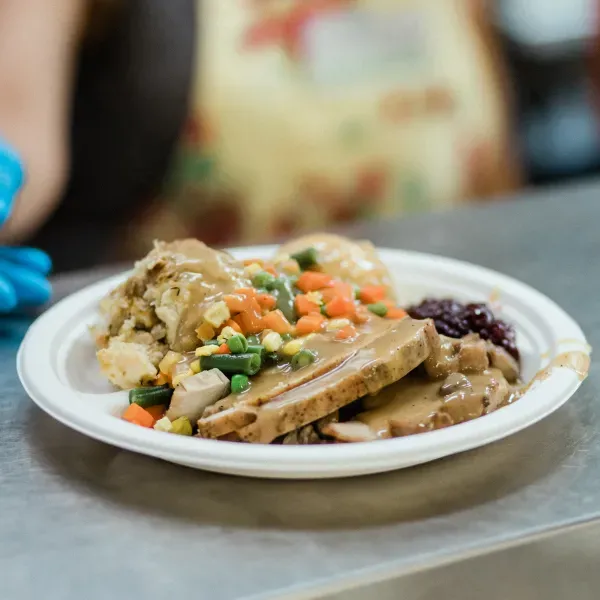[Content warning: This story discusses sexual violence and abortion. It may be triggering to some readers.]
Laura is the kind of person who lights up a room: she has an outgoing personality and her laugh is infectious. You can tell she has a lifetime of experience connecting with people. What you might not be able to tell is the long road it’s taken for her to recover her joy. Here, she shares how she’s come through hard years to arrive at a place of peace and safety.
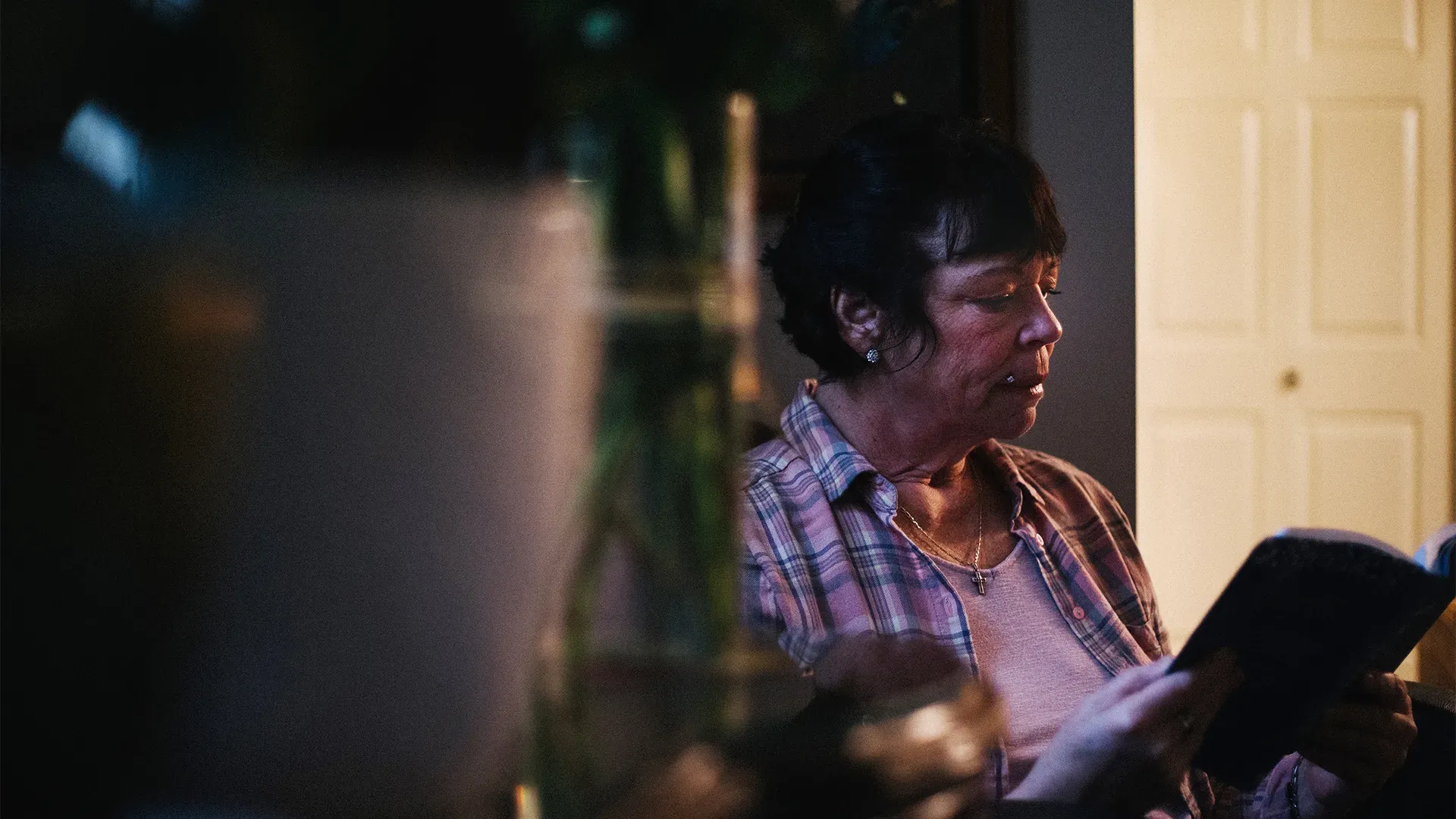
The end is just the beginning
I want to start my story by telling you where I am now, because it’s beautiful. I’m sitting in what I call my prayer chair. From here, I can see my little corner desk, and then beyond is my small galley kitchen, and then my bedroom and all my plants.
This apartment is so peaceful; I'm really in a safe home. And I think that safety is the start of everything for everybody, especially our homeless community and women fleeing domestic abuse. God has given me beauty for ashes. My story is an amazing story of redemption, it really is.
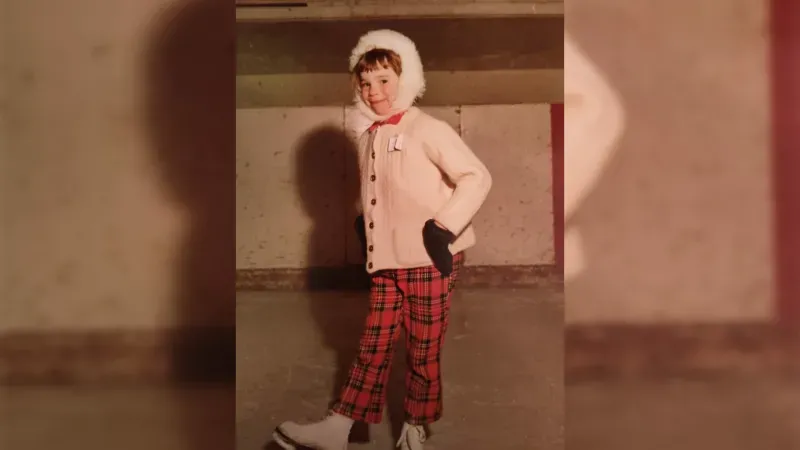
Looking for comfort in a place with no safety
I was born in Marville, France. My parents were in the Air Force, and we moved a lot — we lived in Germany for a while, and then when I was five we came to Canada. There were things I liked to do as a child: I was a figure skater, and I loved the freedom of it, the speed. I tended to play by myself: there were a bunch of abandoned houses nearby, and I would go in and set up a home, making myself a bed and a kitchen and putting up towels like curtains. But I don’t have many happy memories from that time.
When we moved to Canada, my parents divorced; my dad left and never came back. I was really hurt and I missed him, but I didn’t know how to process those feelings; I turned to sugar and sweets as a coping mechanism. Because I spent so much time alone, an older neighbour saw the opportunity to show me attention, but his interest in me was unhealthy. That was my first experience of sexual abuse.
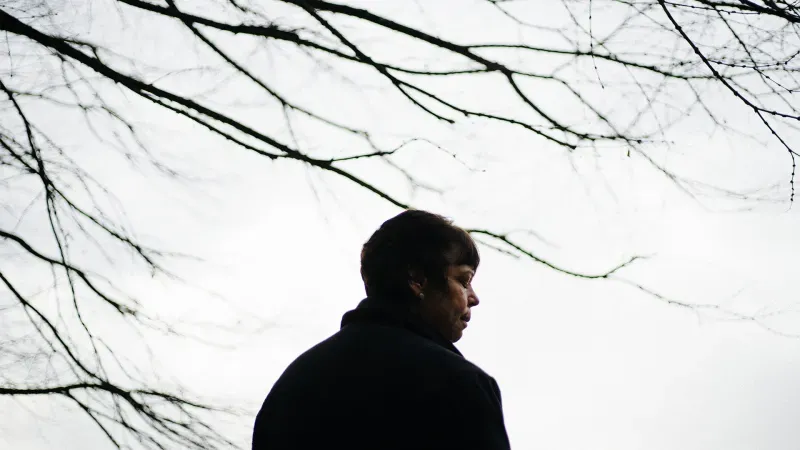
Living out the ripple effects of harm
Because I’d been exposed to abuse at a young age, it changed how I interacted with people. My sexual experiences weren’t always consensual — especially when I was still a child. At 13, I was date raped and became pregnant, which led to my first abortion. I was put into foster care, moving over 30 times in four years. I felt like nowhere was safe, and I struggled with the uncertainty of not having a stable home.

Eventually, I dropped out of high school to focus on working, doing drugs, and drinking. I met my first real boyfriend at 21; at the same time, I was learning survival sex work from a friend. When my boyfriend died suddenly, it added huge piles of shame and guilt to what I was already carrying.
Over the next decade, I worked as a bartender and was involved in an unhealthy on-and-off-again relationship. We were mean to each other when we drank; the bright spot was that I had my wonderful son, Nathan. In the early years of his life, my alcohol dependence interrupted my ability to parent — I got into an altercation with police, and rather than go to jail, I went into treatment and my partner took over care of my son. When I got out, I struggled to cover child support, so when a friend invited me to Fort McMurray with the promise that the streets were paved with gold, I went.
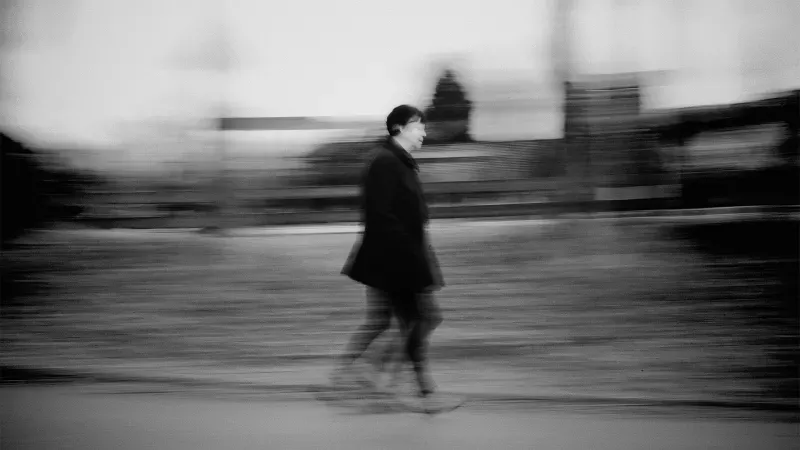
Chasing hope up north
For the first year I was in Fort McMurray, I managed the bar at a beautiful hotel. Things were really good; I made more than enough money for child support. But I started drinking again. And then I tried smoking crack — within a year, I was addicted. I experienced what a lot of women living in addiction experience: I lost my housing and made my way to a tent city community. To maintain my addiction, I turned to survival sex work again, and in 2006 I wound up in hospital after escaping an abduction.
While I was there, one of the women from a nearby alcohol and drug clinic expressed her concern for me. She told me she felt she was watching me die, and asked if I would be open to treatment. She got me into a high-risk shelter in Calgary, and I remember I was given a brand new room with towels and sheets. And I cried because I had been on the streets for so long.
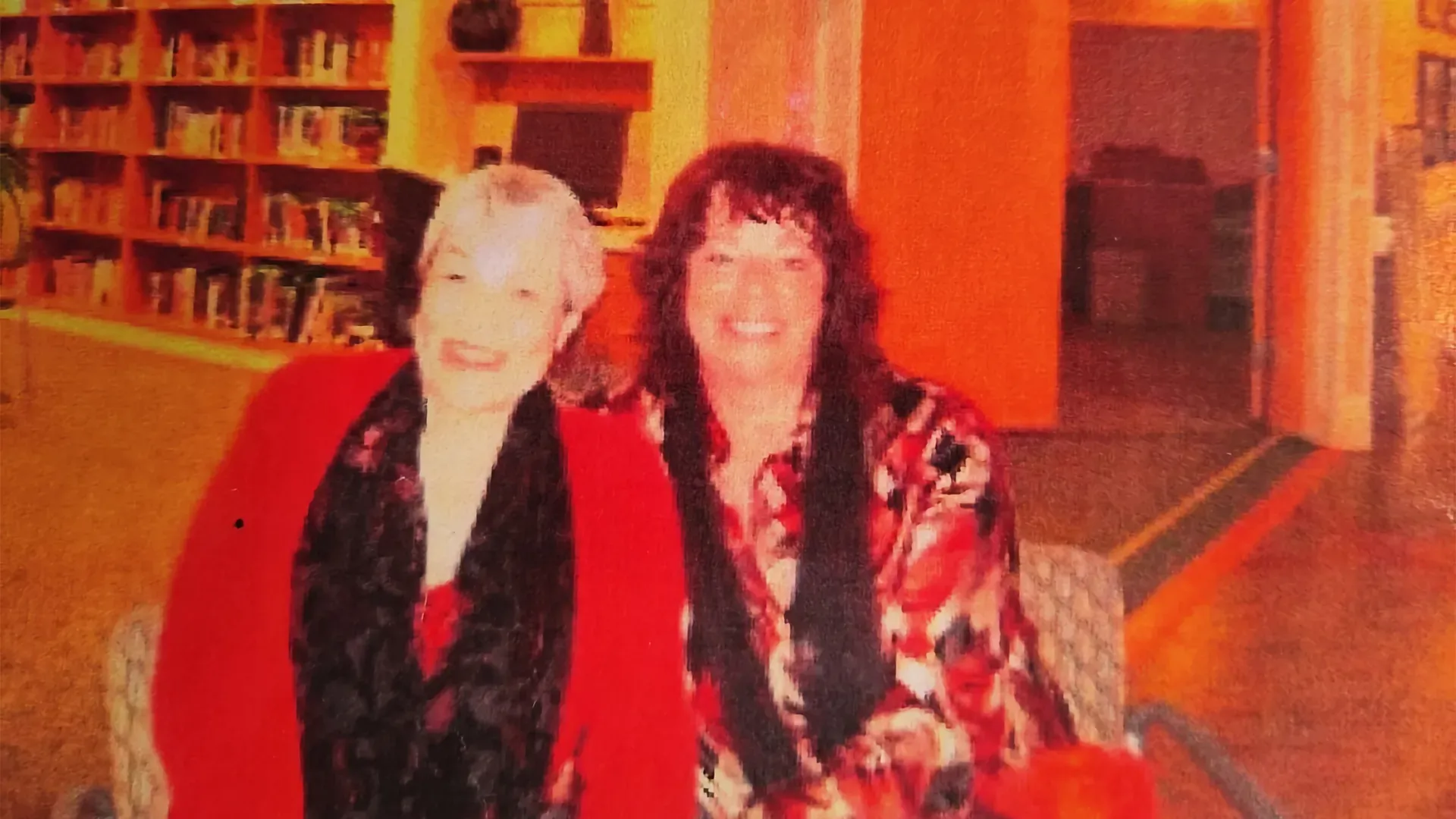
Seasons of recovery and hardship
It took me a while to become stable enough to go back to Kelowna and reunite with my son. During those years, I had times of sobriety followed by seasons of relapse — I was married, briefly, and then I moved to Maple Ridge to look after my mother, who had dementia. I was able to work consistently while being a support for both my mother and my son, until I met a man in recovery and we relapsed together. I became stuck in the cycle: I didn’t want to use, but I couldn’t stop. I ran my life into the ground.
It was in January, 2020 that I first stepped through the doors at UGM’s Lydia Home, a recovery house for women in Mission. One of my sponsors mentioned it, and I was ready to try anything to escape the patterns I’d fallen into. What I didn’t expect was to step into a place that felt so much like coming home.
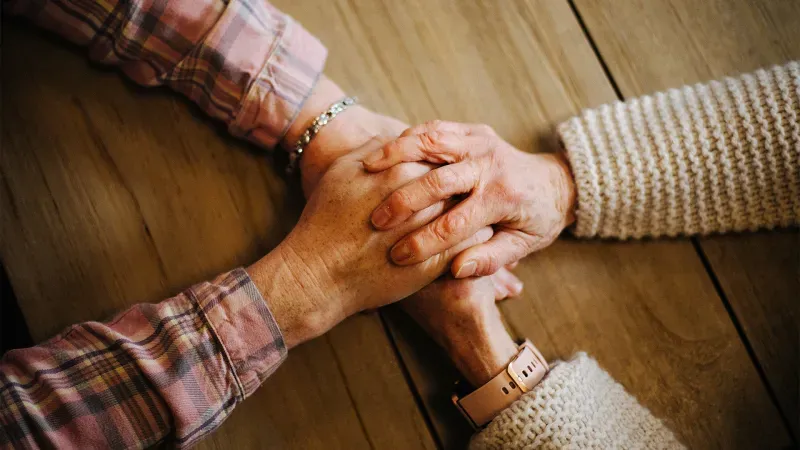
Rebuilding boundaries and encountering God
I think everything you need to know about Lydia Home is right there in its name: it’s not an institution, it's a loving home. I had the privacy of my room, and we ate home-cooked meals together. The staff there are incredible — gentle prayer warriors. They allowed me to be vulnerable and real.
My recovery got a really good start: everyone learns life skills that they’re able to integrate going forward, whether that’s back to school or returning to work. The focus is on always moving forward. We learned about God in our classes, but we also learned boundaries and communication, which is exactly what we needed — because we were living in a house full of other people.
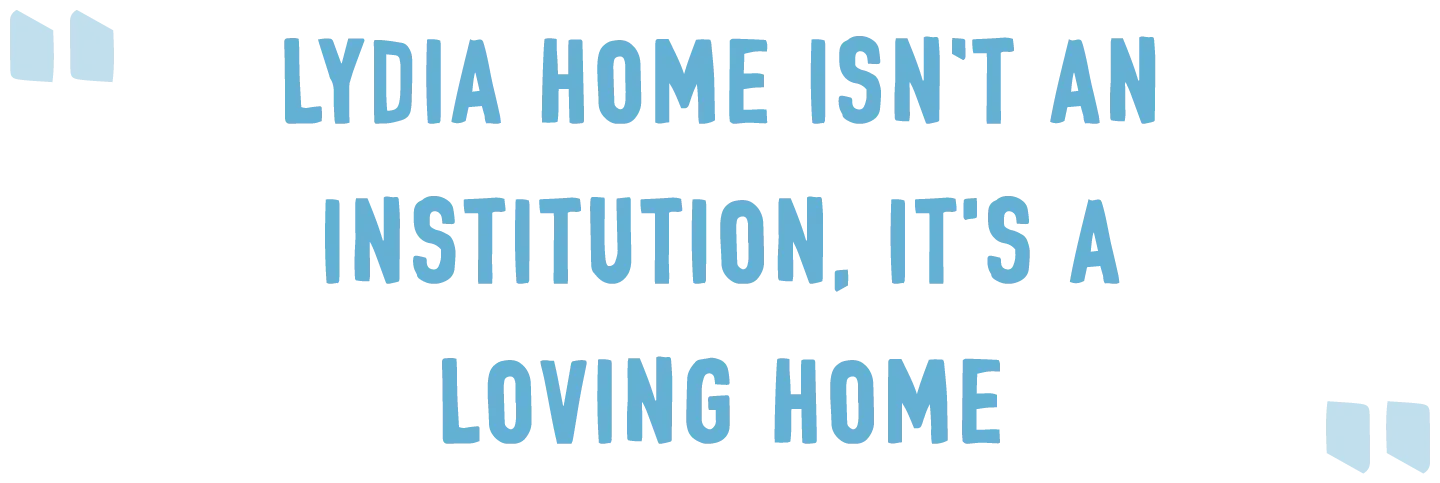
At Lydia Home, I invited God into my recovery for the first time. So immediately, I was immersed in my faith, and I think I needed that for this round of recovery. I never knew about a loving God, and that’s what Lydia Home taught me. I’m trying to see my life through His Word and His compassion. I don’t fear as much. I feel free.
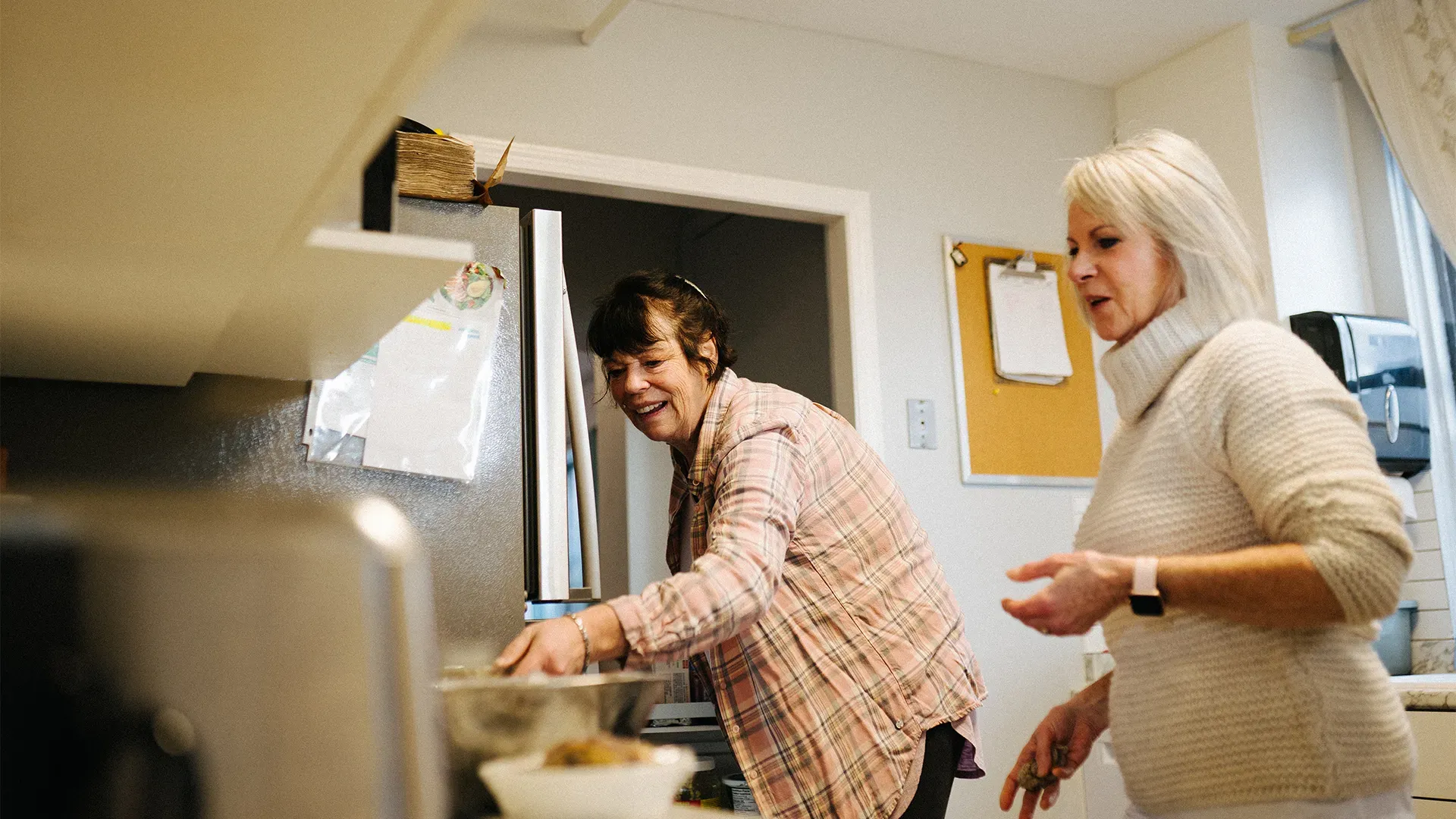
Fully experiencing the goodness of life
I’m now living out my recovery, day by day. I work as a cashier, and I see that as part of my ministry: technically, a machine can do my job, but for now, I get to be there, encouraging people. I hear their fears about rising prices, I’ve seen the cost of food increase and people have to put things back on the shelf. That breaks my heart. And so when I see a single mom that’s struggling, I make sure to tell her she’s doing a great job. If I see something lovely on a senior, I make sure to tell them they look lovely. That’s where my heart is.
I’ve also been focused on my health: I’m more active these days, and I’m really seeing the difference in my mobility and my mental health. I love to camp, and I was able to go five times last year — I have a tent, but I’m saving up for a little trailer. Sobriety has gifted me with the ability to do that.
I have a great relationship with my son. He’s in his mid-twenties, and he’s doing really well — I don’t know how I got so lucky. He’s seen what I’ve overcome in my life, and he tells me I’m his hero. He and his partner know that if they were ever in trouble, they could come to me and I would help them. I’m really blessed.
And I go over to Lydia Home almost every other day, to have lunch and love on the other women. I like to let them know I'm there to help them: I do small things, like take them thrifting or to appointments. I sponsor women and take them through the Twelve-Step Program. It's part of life, that you give back what was freely given to you, and it's a beautiful process.
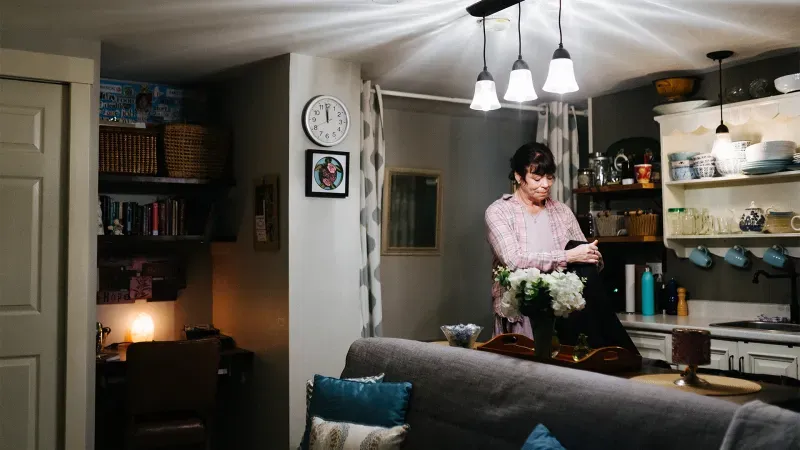
The heart at home
It’s true that I had things snatched away from me as a kid. And because of those experiences, I didn’t know any coping skills: all I had were survival skills.
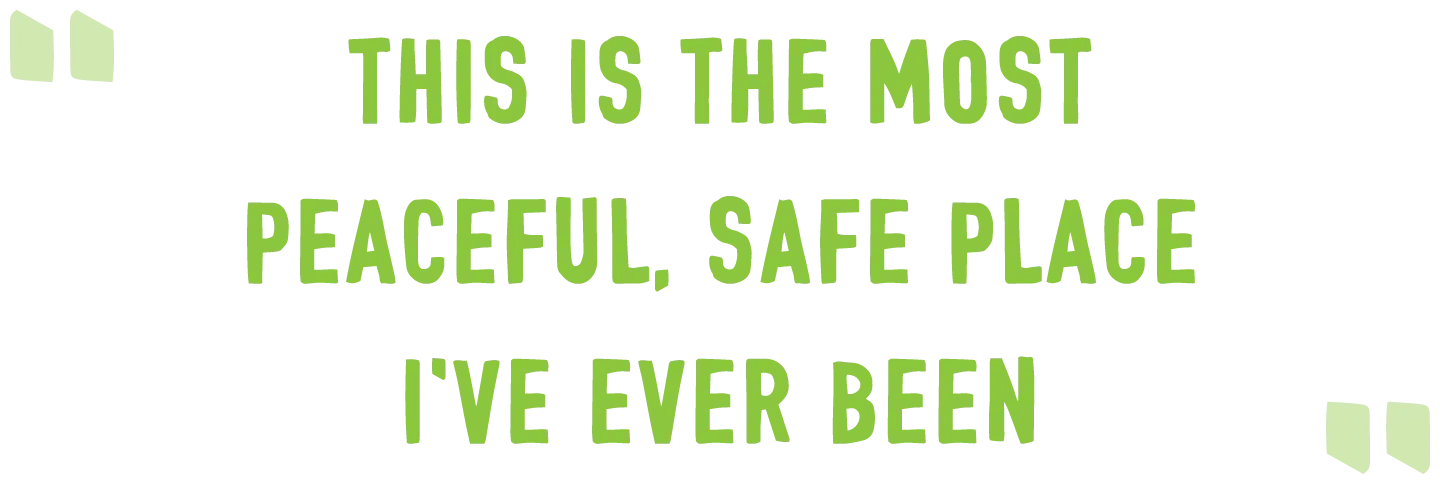
God, He redeemed me. He allowed me to let go of all my shame and regret, and to address the belief that I'm alone and nobody loves me. I’ve learned that God was there the whole time, and that He loves me. It doesn’t matter how good I get or how perfect I can be: I understand that God is not going to love me any more or any less. And that gives me hope for the future, because maybe I’m not living the big life I once dreamed of. But I have peace of mind most of the time. And I’m able to say I’m going to be okay, because of having hope and faith in God.
When I look around this apartment, I feel God’s presence. After where I’ve come from and the kind of living conditions I survived, this is the most peaceful, safe place I’ve ever been. I’m living a big, beautiful life.
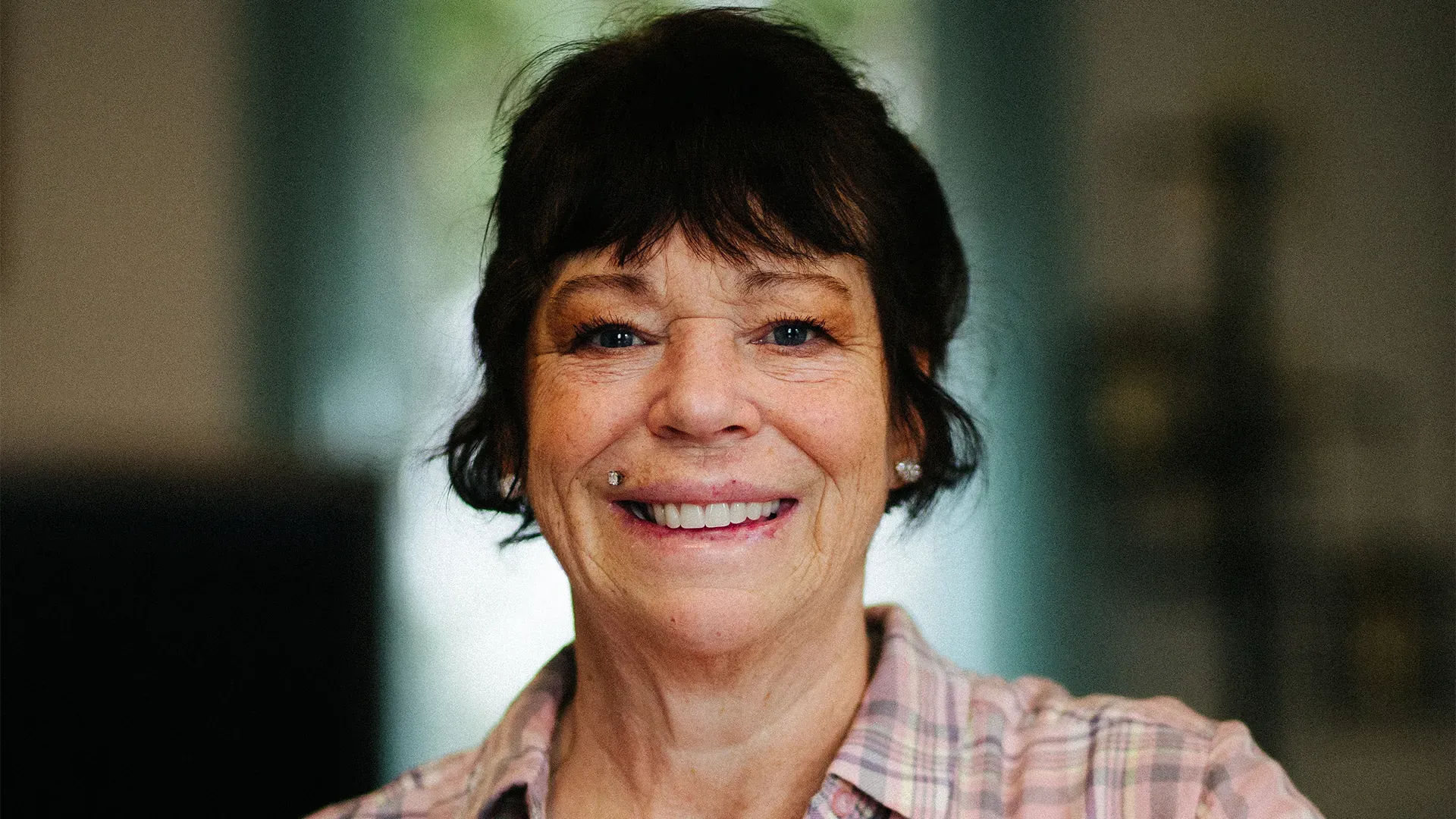
If you or someone you love has experienced sexual assault, please know that there is help. For free, confidential, phone-based crisis intervention, the 24 Hour Rape Crisis Line in BC is 604-872-8212.
President's Message
Behold, I am doing a new thing; now it springs forth, do you not perceive it? — Isaiah 43:19
I don’t know about you, but I’m always a little grateful to see the end of winter. It’s a relief to emerge from the colder months into more daylight, easier temperatures, and greener surroundings.
Many of us find encouragement this time of year. And as you’ve seen in her story, Lydia Home alumna Laura has walked through her own time of great darkness into a new era of hope and joy. Thank you for being a part of these kinds of stories of restoration!
There’s a Latin term, “reviresco.” Roughly translated, it means “to grow green again” or “I am renewed.” I’ve heard it defined as “I flourish in adversity,” while the Maxwell family crest (hello to the Scots) writes it as “I rise again.” As we look to spring and to Easter, a time where we in the Christian faith remember that Jesus died at the hands of his oppressors and was resurrected to new life, I’m praying that we all share in an experience of reviresco. May you be renewed, as you support the many people who are also rising again after adversity.
I look forward to hanging up my winter coat as Vancouver grows green again. And I look forward to the good things ahead of us that God is already at work preparing.
In faith and hope,



